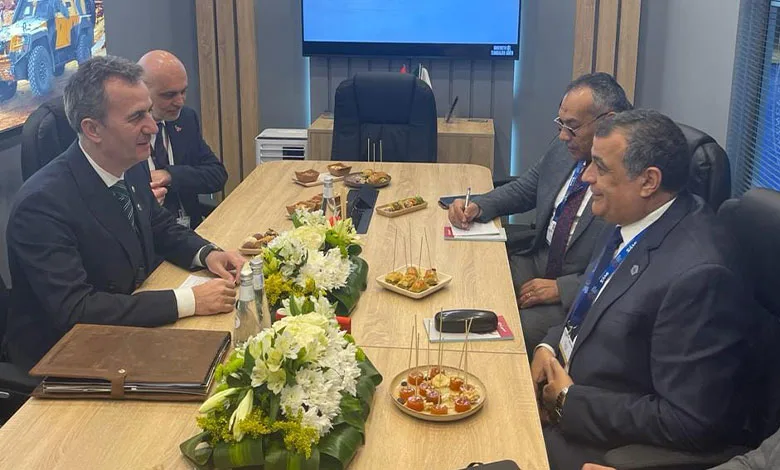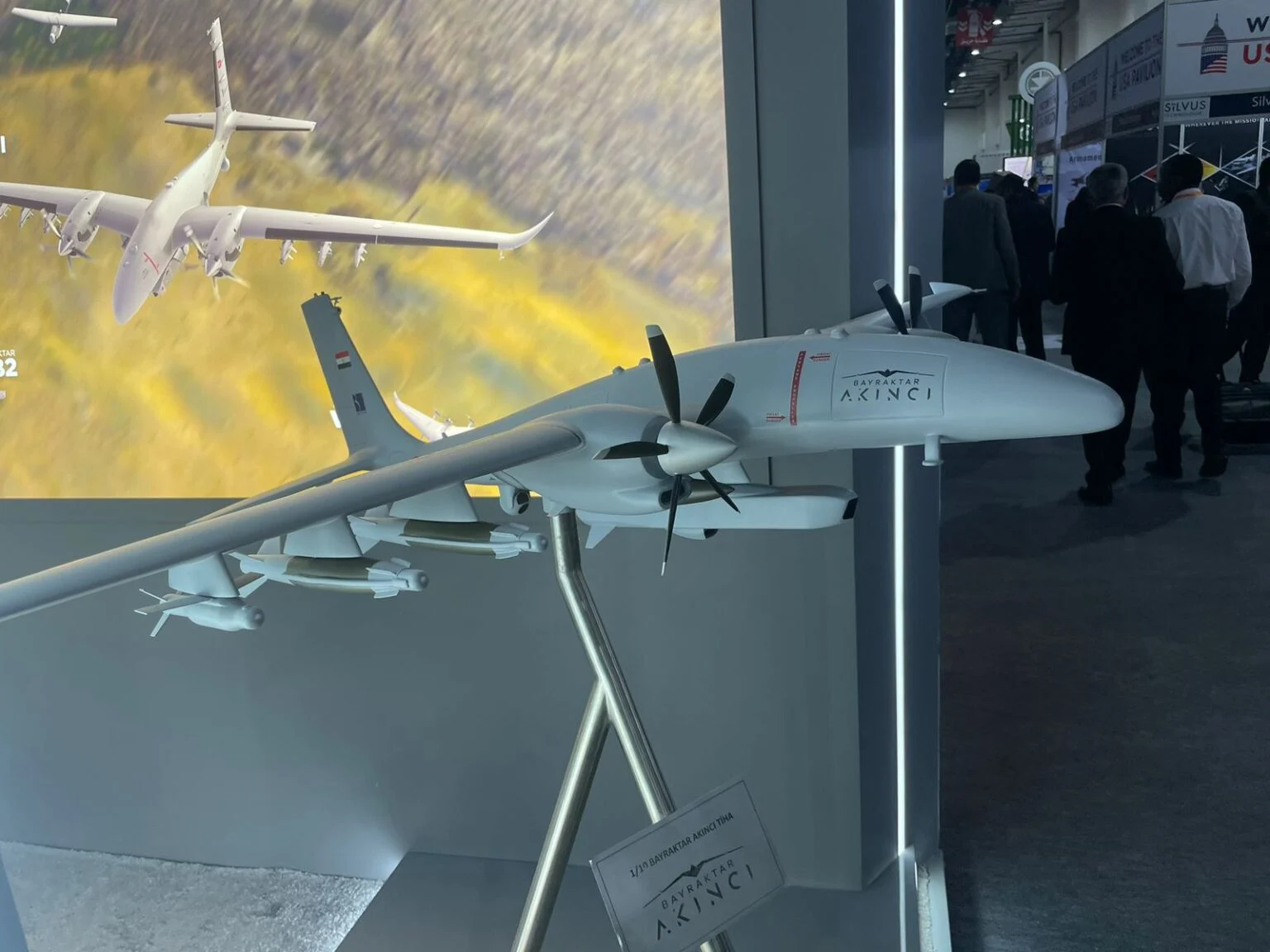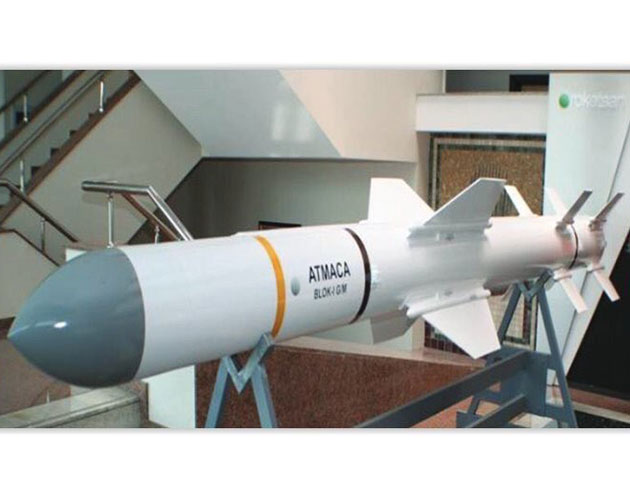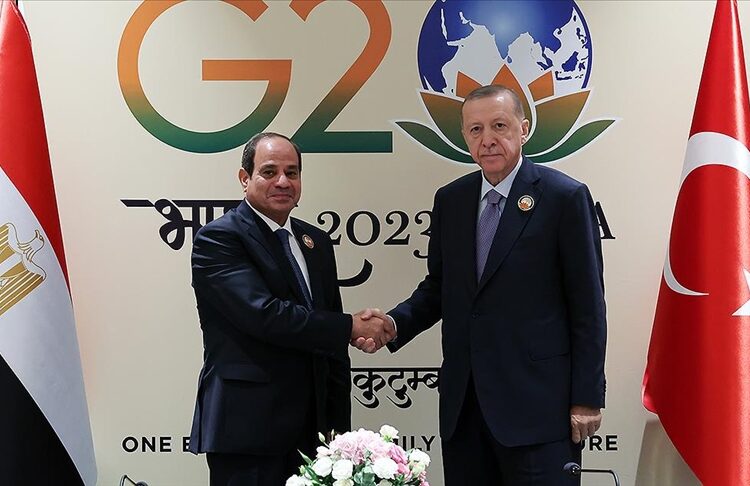Levent Kenez/Stockholm
As Turkish President Recep Tayyip Erdogan prepares for his visit to Egypt on February 14, cooperation in the defense industry between the two nations takes center stage. According to Foreign Minister Hakan Fidan, Turkey has agreed to provide its increasingly popular drones to Egypt, marking a significant step following the normalization of ties between the two countries after a decade of strain.
President Erdogan’s upcoming trip to Egypt holds particular significance since it’s his first meeting with his counterpart, Egyptian President Abdel Fattah el-Sisi, since Ankara and Cairo took steps to strengthen relations by appointing ambassadors last year. Fidan highlighted in an interview that discussions between President Erdogan and el-Sisi will cover a range of bilateral and regional topics, including trade, energy and security.
Head of the Turkish Presidency of the Defense Industry Haluk Görgün met with Mohamed Salah El-Din, the state minister responsible for military production in Egypt, on February 6 during the World Defense Show in Saudi Arabia, focusing on potential collaboration in the defense industry between the two countries.
During their meeting the Egyptian minister highlighted a previous visit by an Egyptian delegation responsible for military production to three Turkish companies in December 2023. He expressed Egypt’s willingness to engage in cooperation with the Turkish firms to jointly manufacture various munitions.

Egypt has shown a keen interest in a range of advanced defense products, including the TRLG-230 missile, mini smart munitions such as MAM-C, MAM-L and MAM-T, the laser-guided long-range anti-tank missile system L-UMTAS, the medium-range anti-tank weapons system OMTAS, the KARAOK short-range anti-tank weapon and the ATMACA anti-ship missile.
Images featuring models of Bayraktar military drones were showcased in the Turkish media during the EDEX 2023 defense industry fair in Cairo in December. Drones as well as armaments featured the flag of Egypt.
The recent Israel-Hamas conflict has spurred Egypt to accelerate its armament process, particularly in its air force.

It’s no secret that President Erdogan has been using Turkish-made military drones as an instrument in foreign policy for some time now, presenting African and Middle Eastern countries in particular with lucrative and win-win offers that not only make money for the family business but also strengthen his hand against his opponents in exile. Erdogan, his family members and his business associates benefit immensely from defense industry and military goods sales. Selçuk Bayraktar, one of the owners of Baykar, is Erdogan’s son-in-law, and his company not only takes advantage of all state facilities but also earns high profits in the local and international markets with the sale of weapons, for which the only decision-maker is his father-in-law.
An important factor for the success of Turkey’s initiatives to increase defense exports in recent years, also called “drone diplomacy,” lies in Turkey’s concentration on commercial targets rather than how and against whom these weapons are used. Turkey does not have a long export approval process for defense products, either, unlike the US and the European Union.
Turkey is actively engaged in rebuilding its relationship with Egypt. The process of normalization, initiated in 2021, saw significant progress as both nations announced on July 4, 2023 the restoration of diplomatic relations at the ambassadorial level after a 10-year hiatus, marked by the reciprocal appointment of ambassadors.
 President Erdogan had been a vocal critic of el-Sisi following the latter’s rise to power, particularly due to the ousting of Mohamed Morsi, leader of the Muslim Brotherhood, which historically had close ties with Islamists in Turkey. Turkey stood alone in calling for the UN Security Council to impose economic and political sanctions on el-Sisi, accusing him of war crimes. This led to both countries declaring each other’s ambassadors persona non grata and their subsequent expulsion in 2013.
President Erdogan had been a vocal critic of el-Sisi following the latter’s rise to power, particularly due to the ousting of Mohamed Morsi, leader of the Muslim Brotherhood, which historically had close ties with Islamists in Turkey. Turkey stood alone in calling for the UN Security Council to impose economic and political sanctions on el-Sisi, accusing him of war crimes. This led to both countries declaring each other’s ambassadors persona non grata and their subsequent expulsion in 2013.
Istanbul emerged as a hub for Arab media outlets critical of their home governments, particularly for Egyptian media affiliated with Morsi’s Muslim Brotherhood.
However, amid the normalization process, Turkey urged Brotherhood-affiliated media to cease critical coverage of the Gulf countries and Egypt. Failure to comply could lead to deportation procedures and potential disruption of television broadcasting activities. Nevertheless, Egypt continues to demand the extradition of Muslim Brotherhood dissidents, the withdrawal of Turkey’s military in Libya and the resolution of disputes between Turkey and Greece in the eastern Mediterranean.
Meanwhile, Turkey’s growing military cooperation with Ethiopia poses a significant obstacle to the normalization of relations between Turkey and Egypt. Amid escalating tensions between Cairo and Addis Ababa over the Grand Ethiopian Renaissance Dam, Turkey approved a military agreement with Ethiopia in 2023, just prior to a parliamentary recess. The agreement, which allows for joint military exercises and cooperation in the defense industry, has attracted criticism from opposition lawmakers who view it as inconsistent with Turkey’s efforts to repair ties with Egypt.
Egypt and Sudan have expressed concerns about the dam’s potential impact on the Nile River, leading to heightened tensions in the region. Despite efforts to negotiate a solution, including warnings of military intervention by Egypt, Ethiopia remains steadfast in its stance. Meanwhile, Turkey’s involvement in Ethiopia’s military operations, highlighted by the use of Turkish-made drones in attacks resulting in civilian casualties, further complicates the situation.
Turkey’s attempts to reconcile with Egypt have faced challenges due to its support for the Muslim Brotherhood and its involvement in Libya’s conflict.
On Wednesday Foreign Minister Fidan, prior to his visit to Libya, stated that they were in dialogue with Egypt and the UAE to coordinate joint action in Libya.












